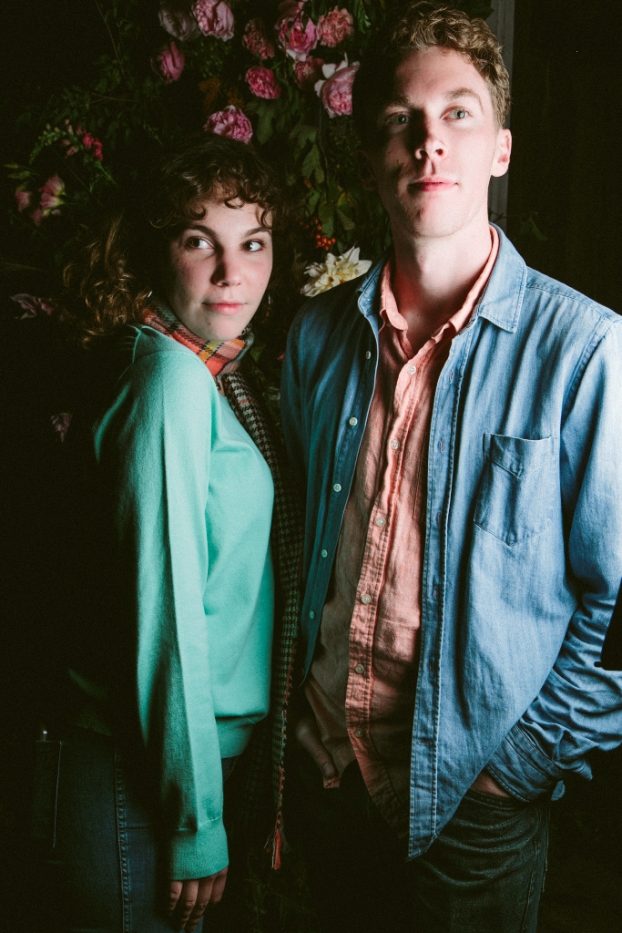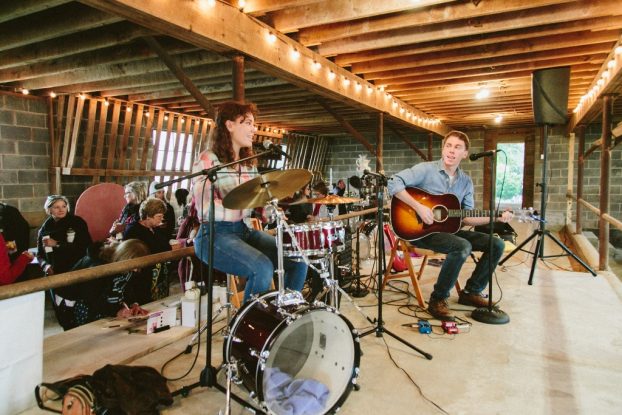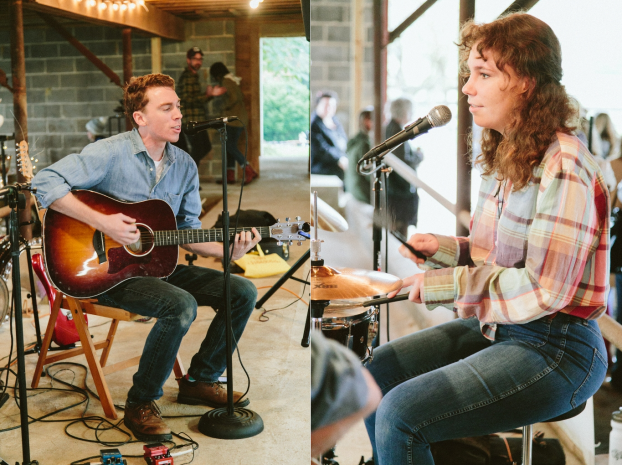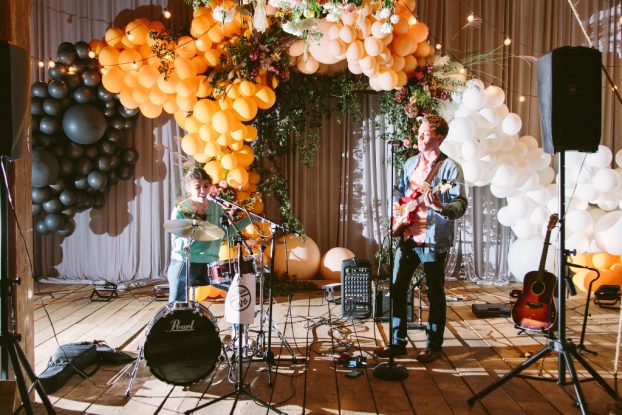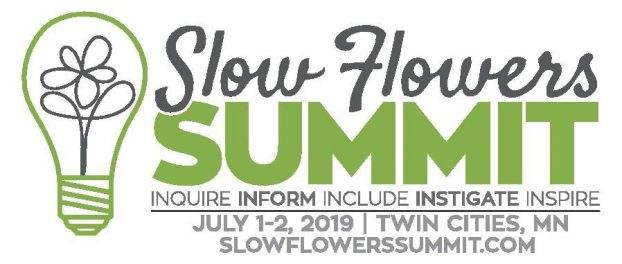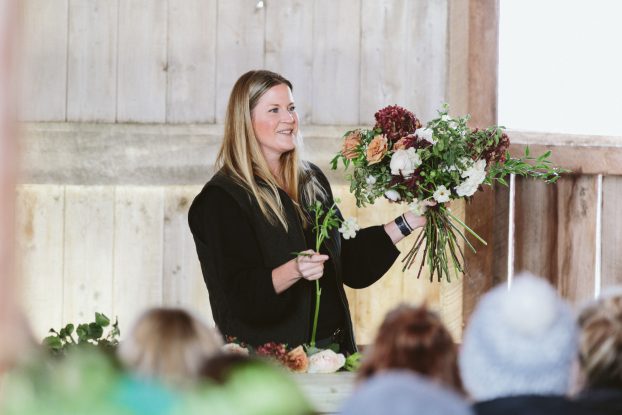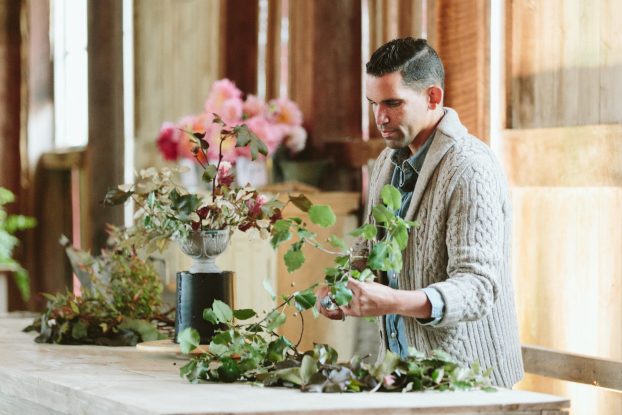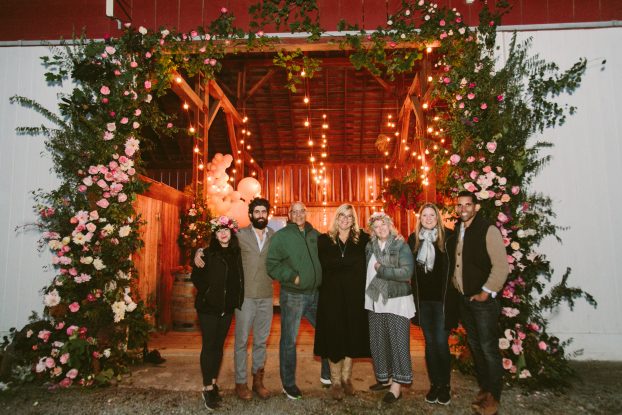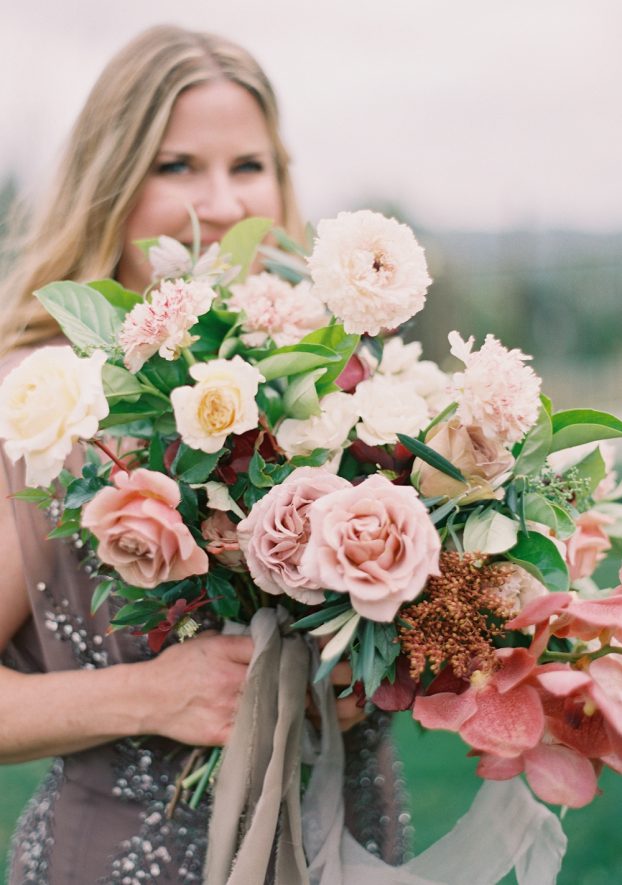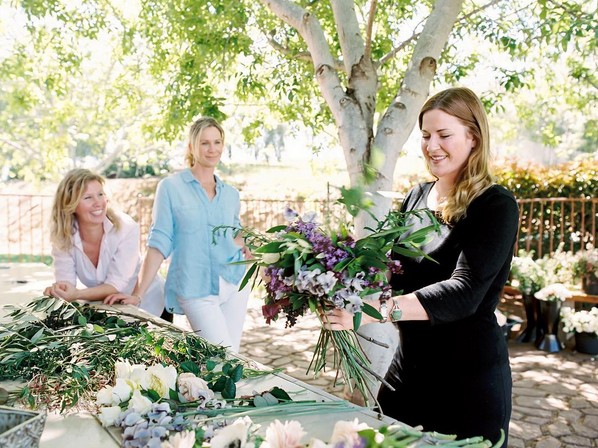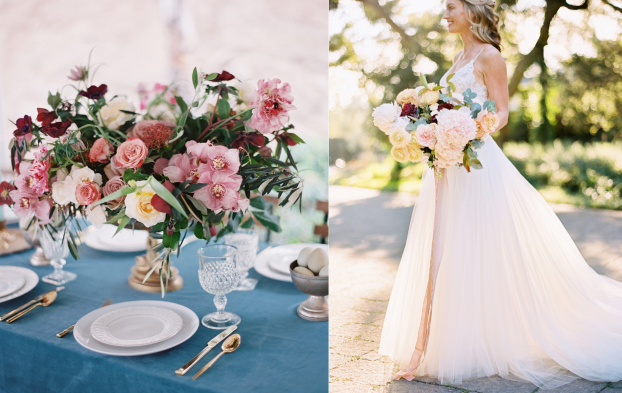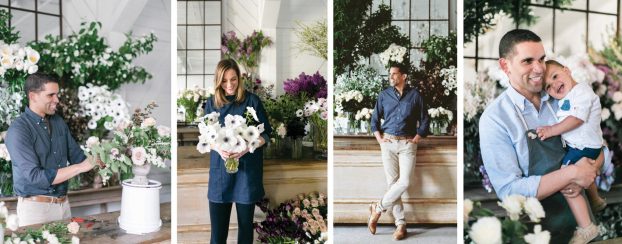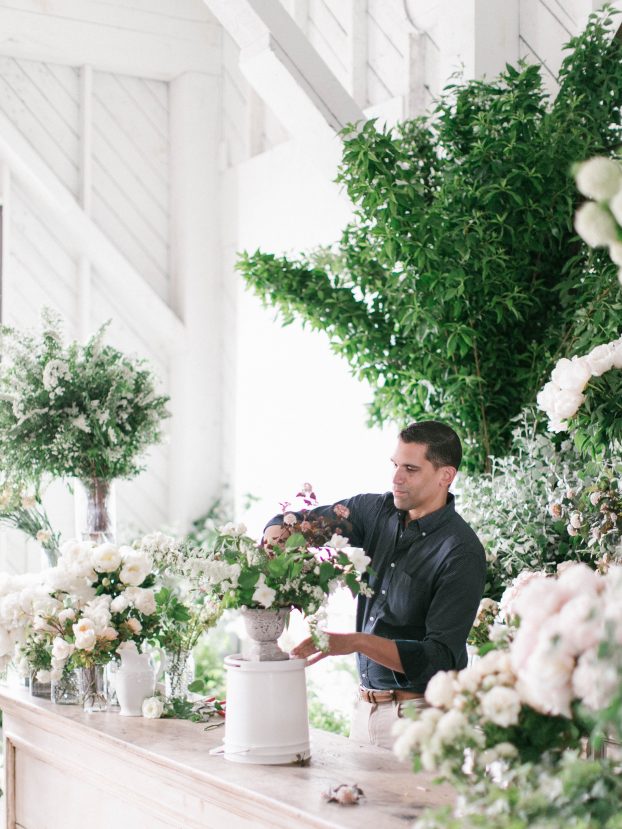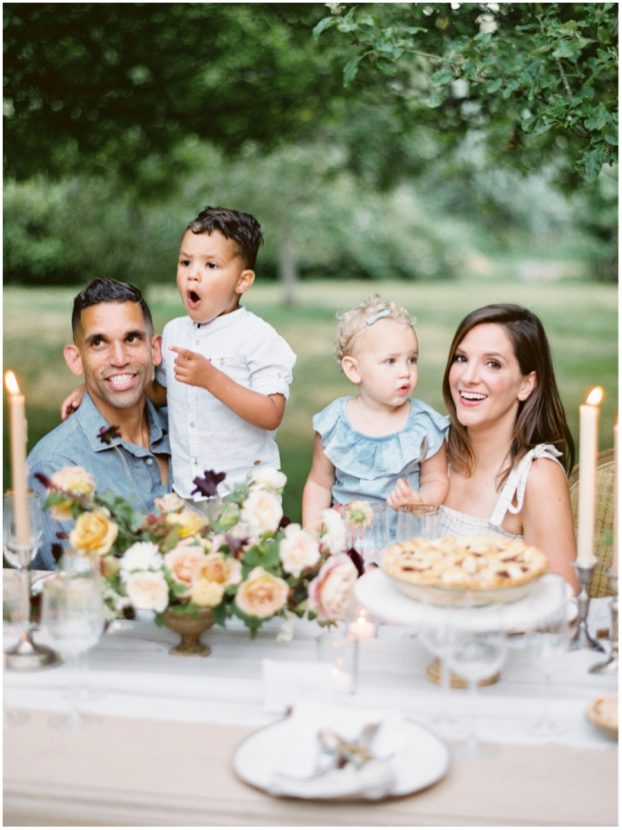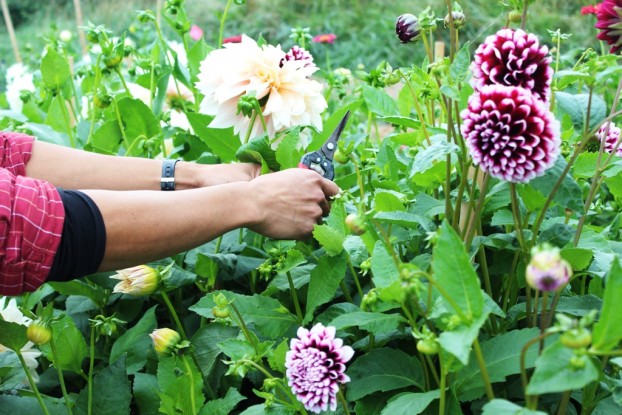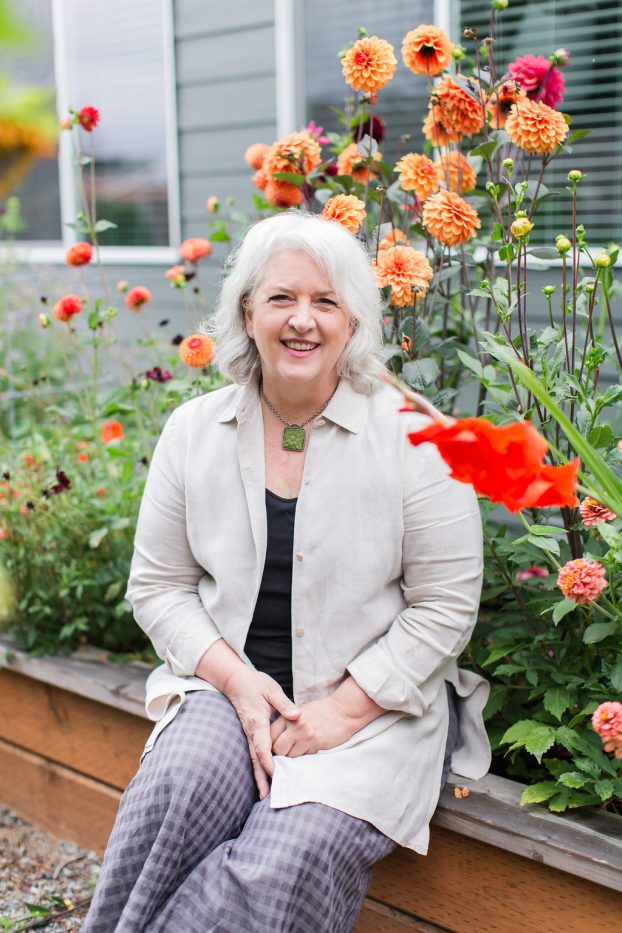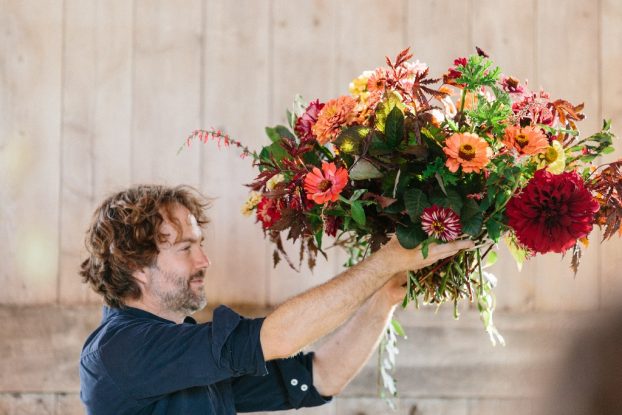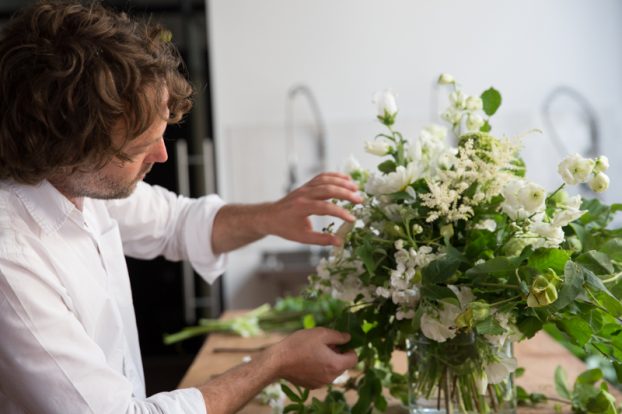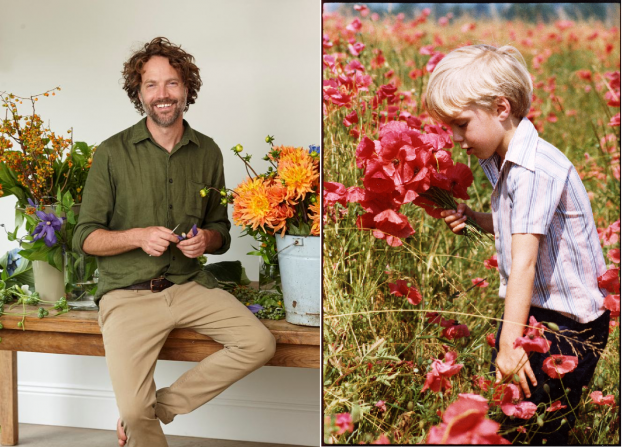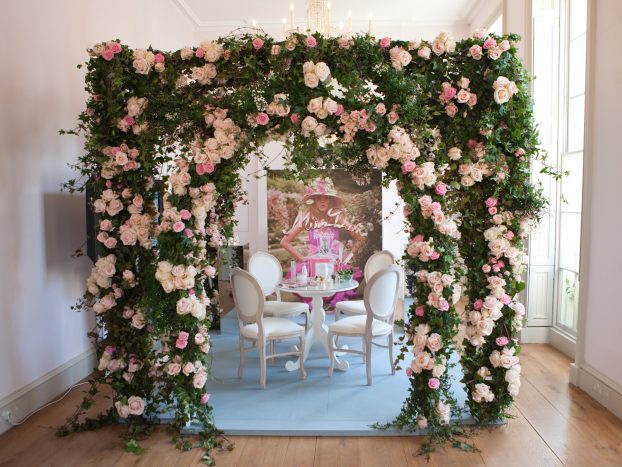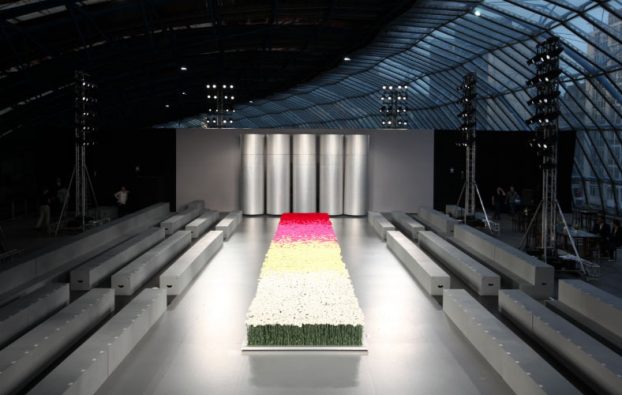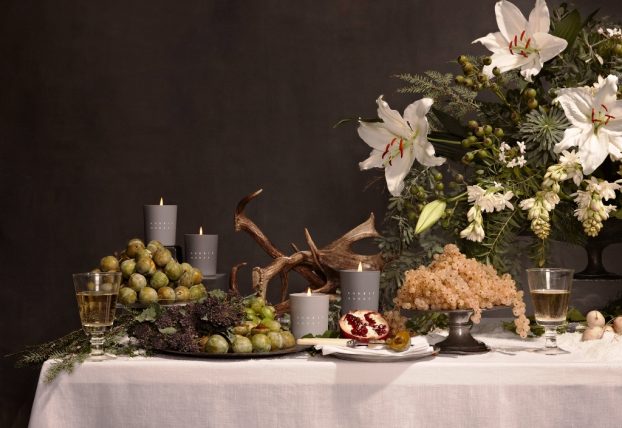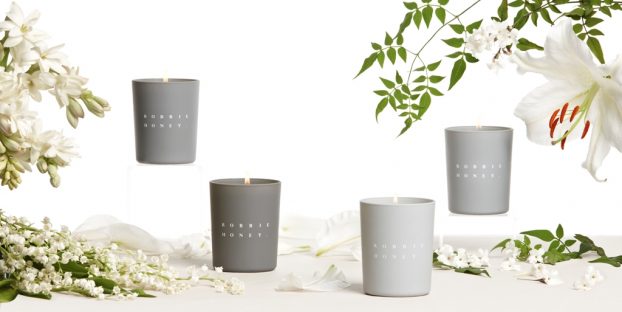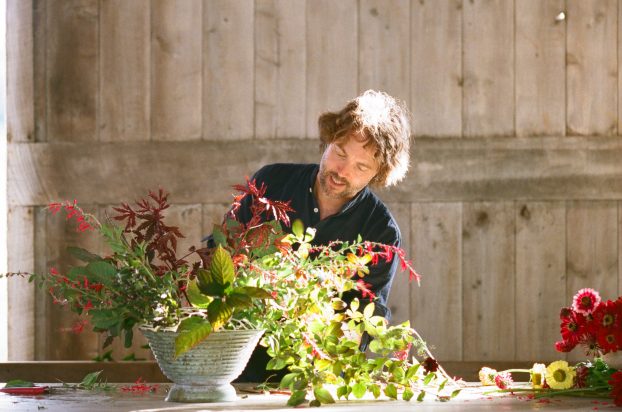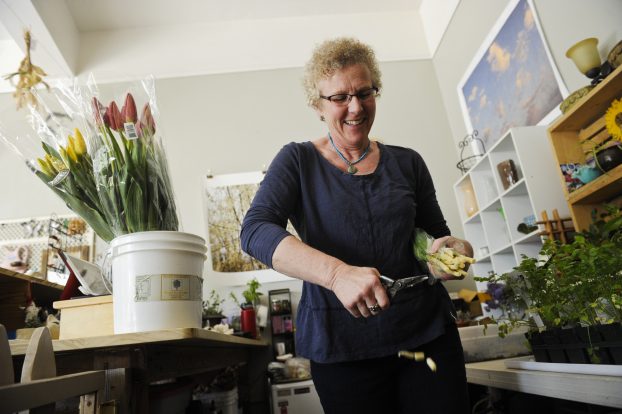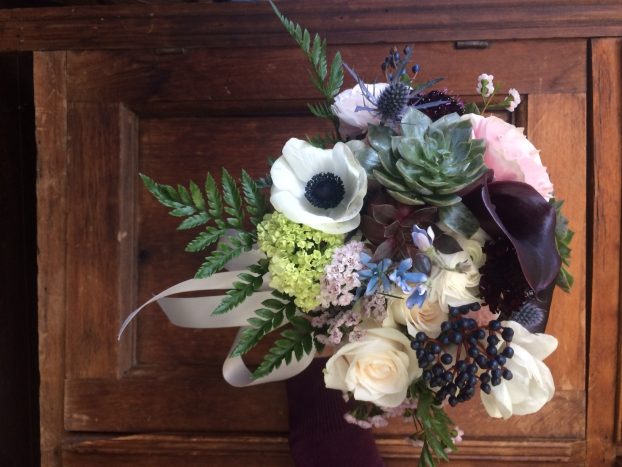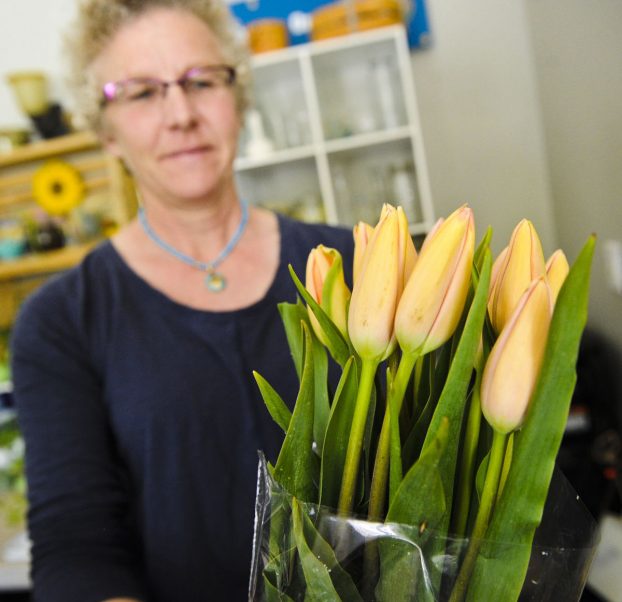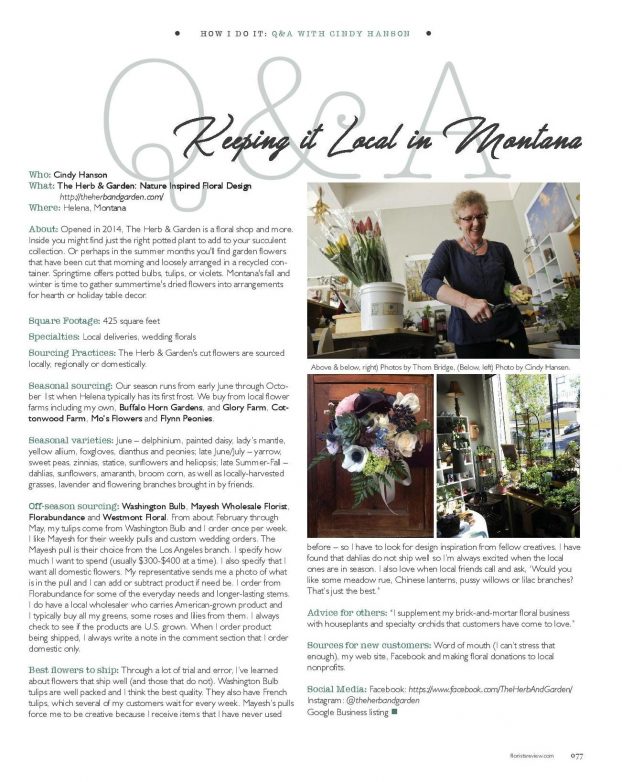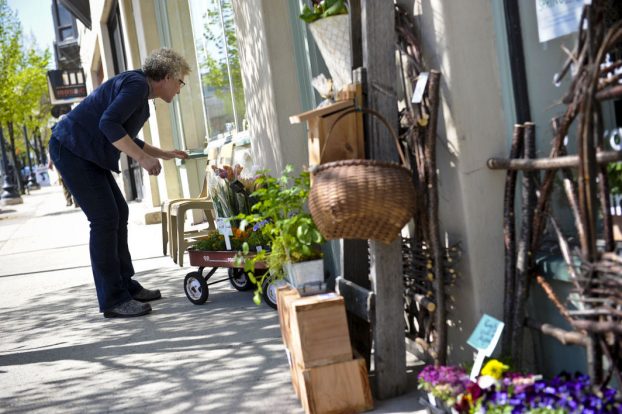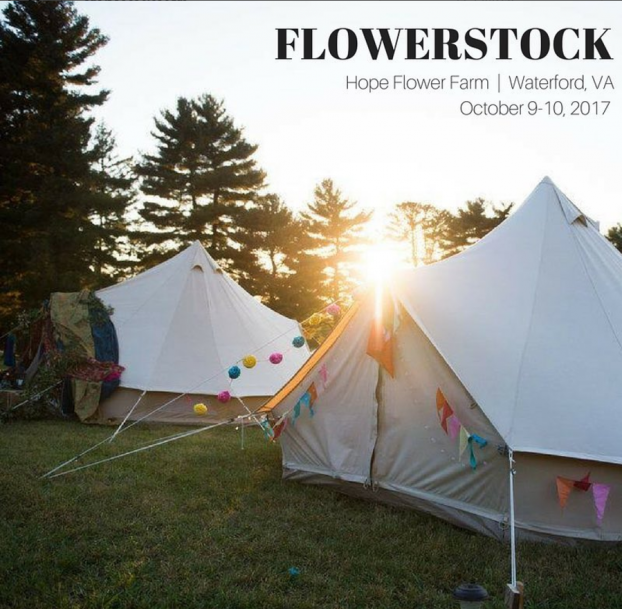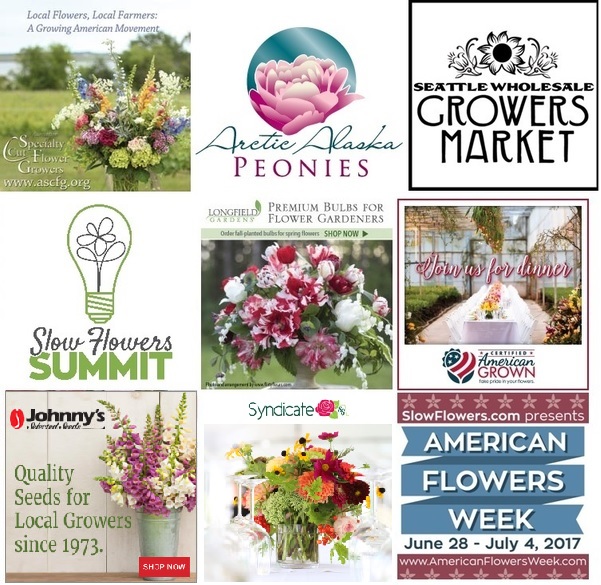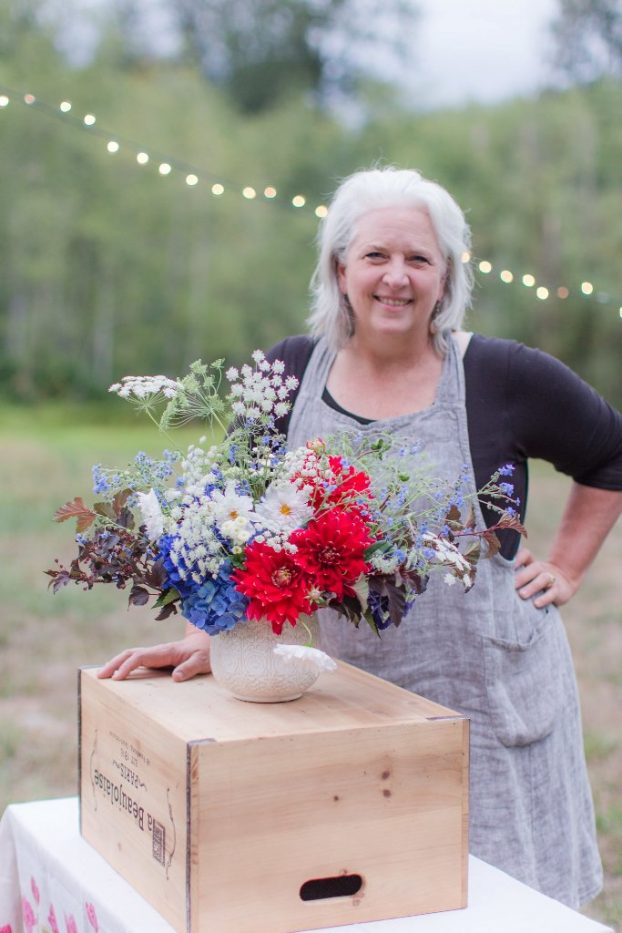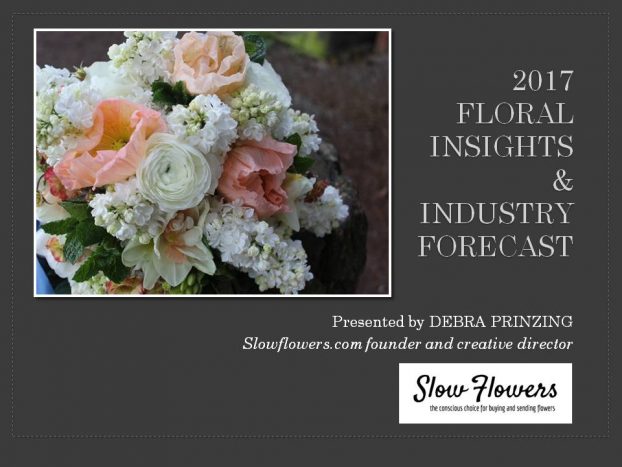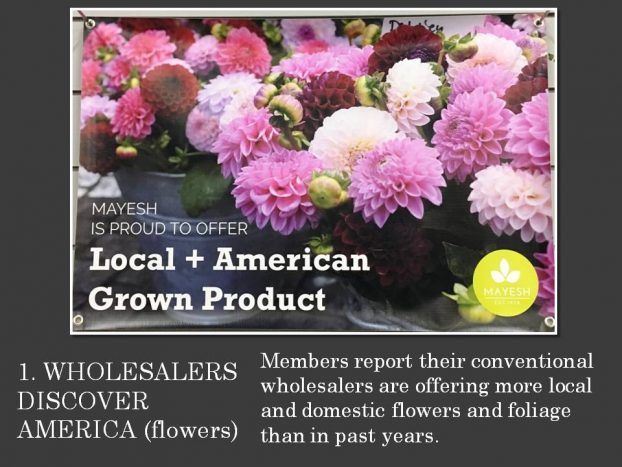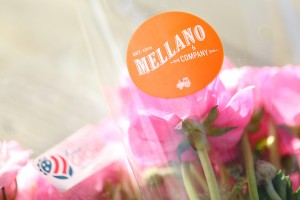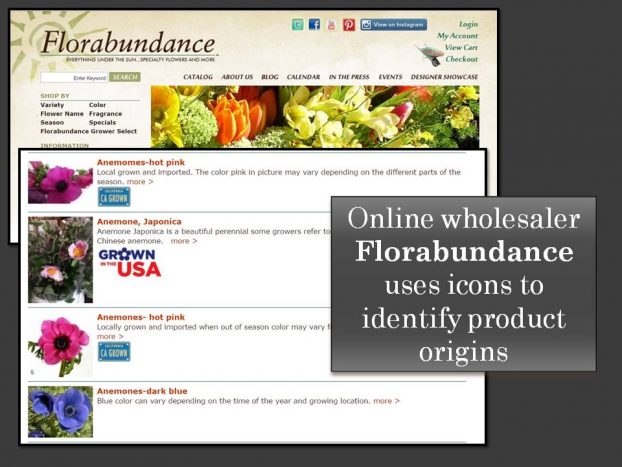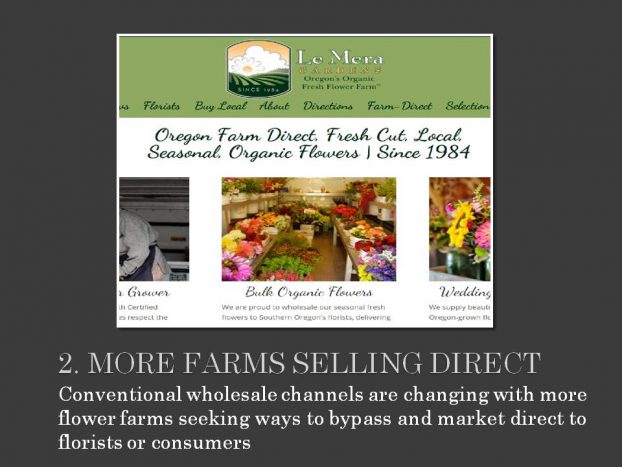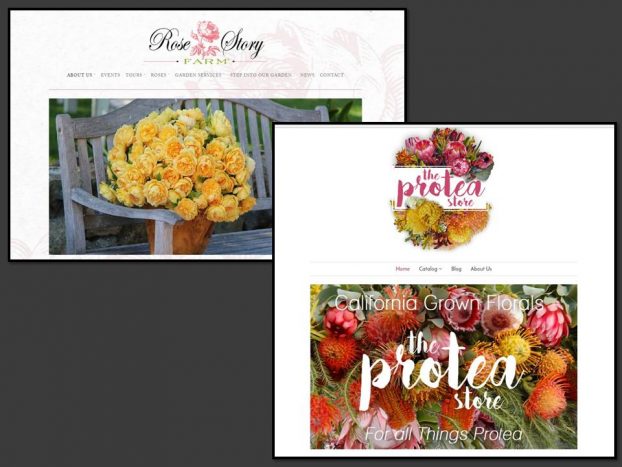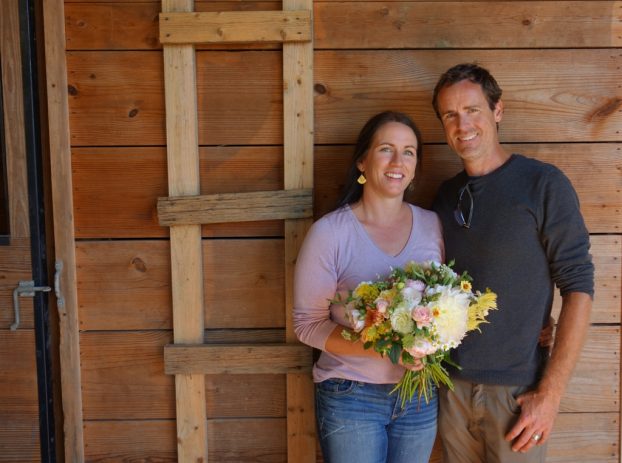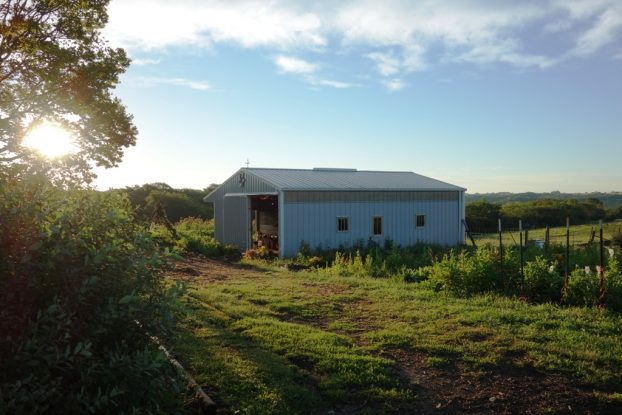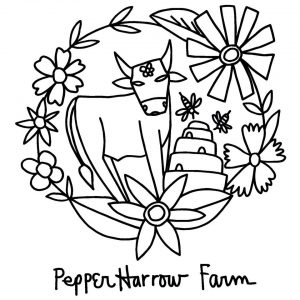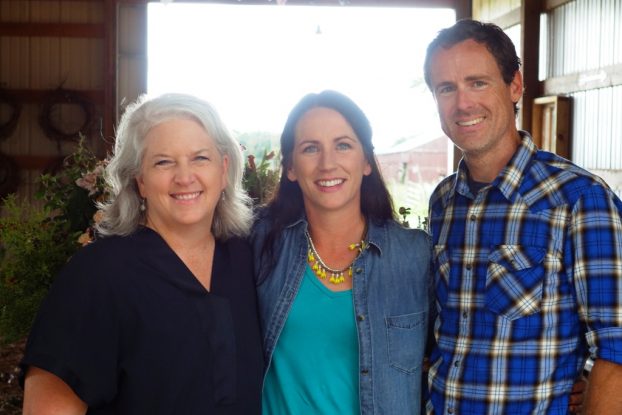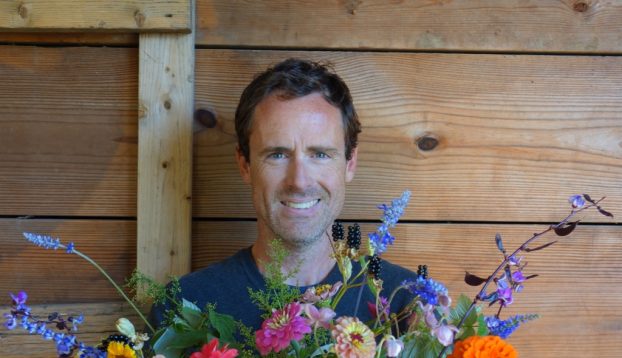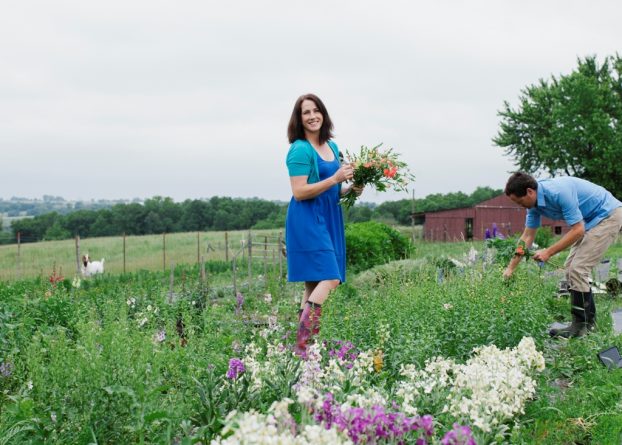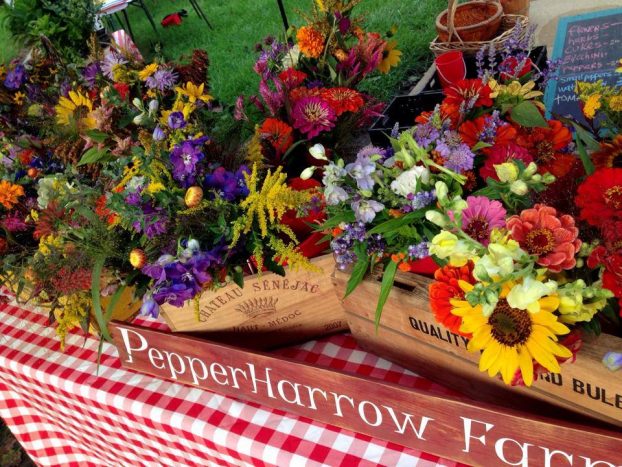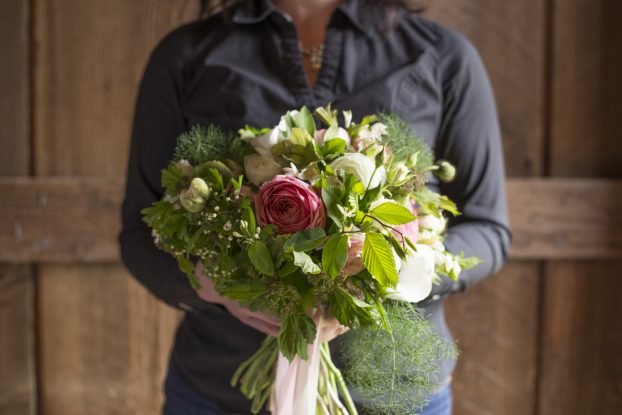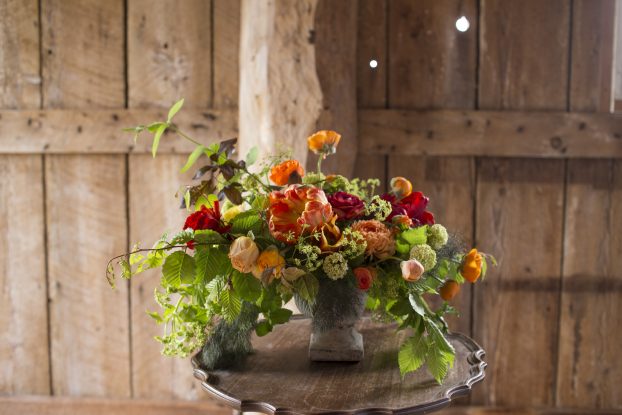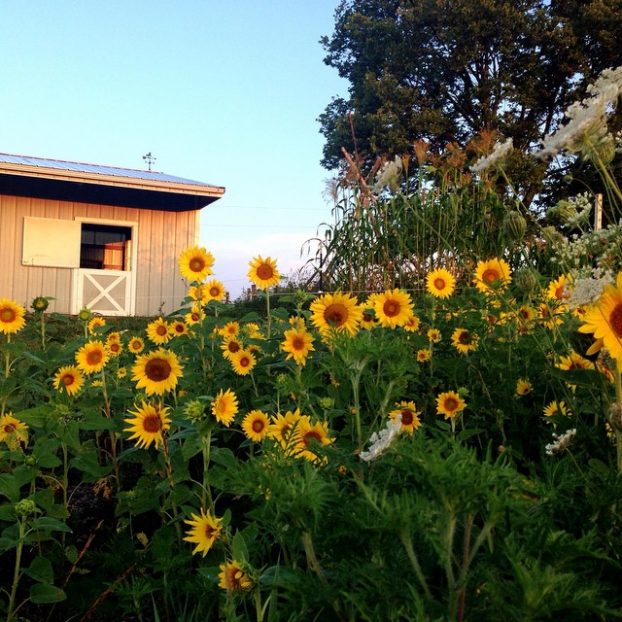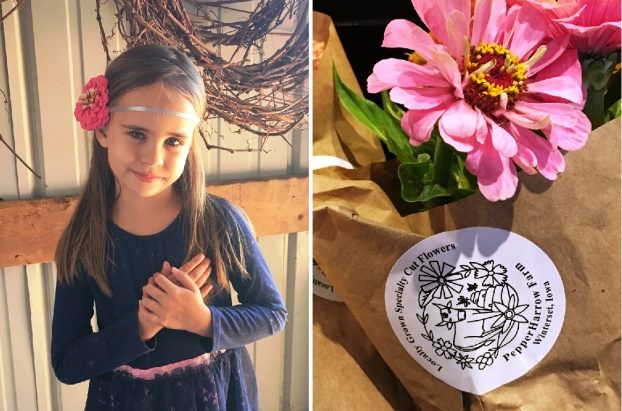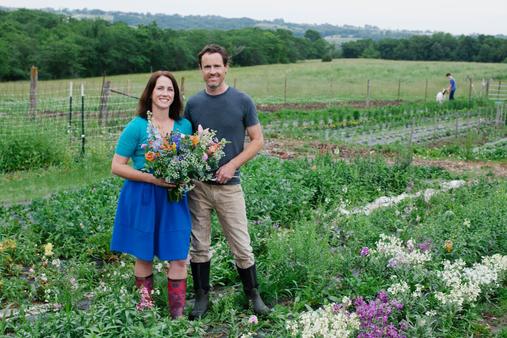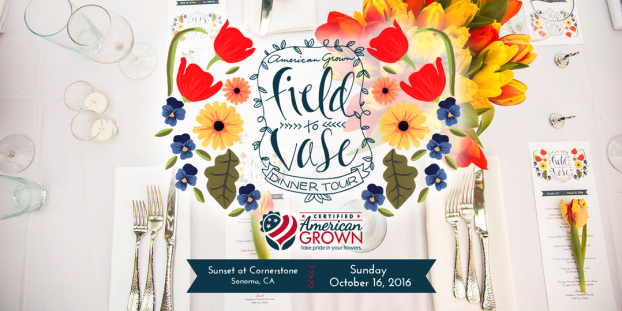Podcast: Play in new window | Download
Subscribe: Apple Podcasts | Podcast Index | RSS | More
It’s that time again, the annual Slow Flowers Holiday Music Special!
I’m incredibly excited to welcome the sibling singer-songwriter duo Nathan Leach and Ava Leach. In today’s episode, you’ll hear four original songs: Allie; 330; Belgium Fields; I Wish and one Amy Winehouse song: Valerie.
If you’ve attended Holly Chapple’s Flowerstock Festival, you’ve already been treated to live performances by Nathan and Eva. That’s how I met them and I’m so excited they’ve agreed to join the Slow Flowers Podcast to share their story and music with us as we ease into the holiday season!
It’s mindboggling to say this, but music videos on the Nathan & Eva YouTube channel have been viewed more than 26 MILLION times, so it is very special to speak with these young talents about the music they create and have shared with so many.
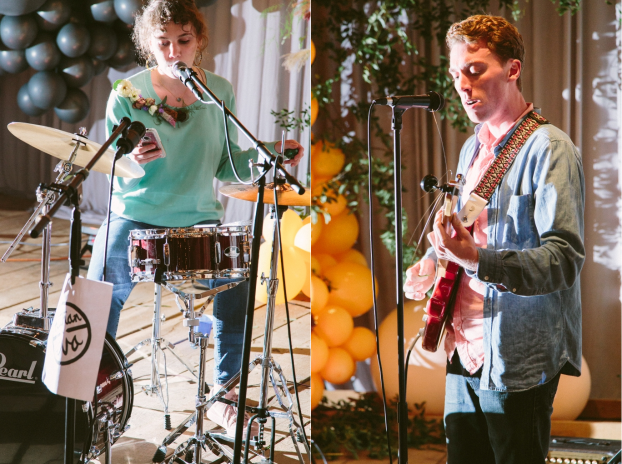
I love these glimpses of Eva and Nathan, captured by photographer Sarah Collier at Flowerstock (c) Taken by Sarah
Nathan & Eva is a Musical Duo from Charleston, South Carolina.The origins of their story are pretty recent and immensely fascinating. While in school at USC Columbia, Nathan longed to get back into guitar playing, so he began to post cover songs on YouTube. Over time, he expanded the roster of featured talent to include the occasional help from his sister, Eva. In 2013, they posted a cover of Family of the Year’s “Hero”. In 2015, that video went viral.
Here’s that video from 2013:
Media outlets began sharing this unassuming video everywhere. Starting on the San Francisco Globe, the video bounced around from outlet to outlet and received the attention of major players in the media and music industry: among them the Glenn Beck show, Jimmy Kimmel Live, America’s Got Talent, the Voice, and Walk Off the Earth. The French site Féroce shared a separate version of the video as well, where it garnered millions more views.
What this all amounted to was a crazy few weeks for the siblings, who were both still in school at the time. With a newfound international fanbase and a Youtube audience that had exponentially exploded overnight, they began working on cleaning up their live act and beginning to produce original songs.
Here’s a video of Allie, which you’ll hear on today’s episode (2018):
Having released their first EP of original songs under their self-titled EP, ‘Nathan & Eva’ in early April, the duo are hard at work establishing a local fanbase in Charleston and producing the next album. You can order the EP on Spotify here.
This is an extended episode featuring five of their musical numbers interspersed in our interview.
Please enjoy this Slow Flowers holiday gift follow Nathan and Eva as their careers continue to soar.
I’m so so inspired by hearing this story of two young talents with drive, heart and determination to share their music with the world.
Whenever I’m in the presence of people whose work and art I admire, I feel inspired to up my own game and pursue my dreams. I hope that’s your takeaway, too!
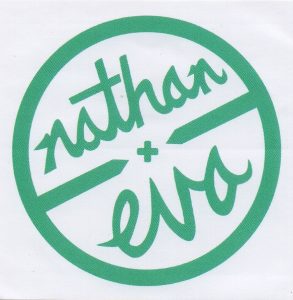 Find and follow Nathan & Eva at these social places:
Find and follow Nathan & Eva at these social places:
Read more about Nathan and Eva in Charleston City Paper
Thanks so much to Nathan and Eva for sharing their music with us today! What a lovely experience – I hope you enjoyed it as much as I did and I know you’ll want to follow their music in the coming year! Thanks, too, to Andrew Brenlan, our gifted editor, for helping me assemble this episode!
Next week, our final episode of 2018, will feature our Year in Review, and then, on January 2nd, I will reveal the 2019 Slow Flowers Floral Insights and Industry Forecast. It’s a time of reflection of all this community has achieved and a time to reimagine and dream for our future. Please join me.
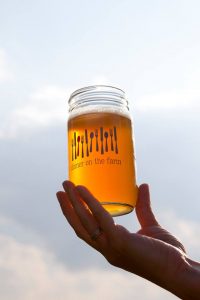 Don’t forget to visit the Slow Flowers Summit web site for all the details about the 2019 Slow Flowers Summit, scheduled for July 1st & 2nd in St. Paul, Minnesota — you can grab an Early Bird ticket and save $100 if you register by December 31st. Slow Flowers Members receive preferential pricing, so check it out.
Don’t forget to visit the Slow Flowers Summit web site for all the details about the 2019 Slow Flowers Summit, scheduled for July 1st & 2nd in St. Paul, Minnesota — you can grab an Early Bird ticket and save $100 if you register by December 31st. Slow Flowers Members receive preferential pricing, so check it out.
We’ve also just posted all the details about the June 30th pre-conference tour of two Minnesota flower farms — Blue Sky Flower Farm & Green Earth Growers, both Slow Flowers Members, AND the first-ever Slow Flowers Dinner on the Farm, with the Summit Speakers and fellow conference attendees, which will take place at Green Earth Growers outside Minneapolis. This is a ticketed event and you can find details here.
We have a vital and vibrant community of flower farmers and floral designers who together define the Slow Flowers Movement. As our cause gains more supporters and more passionate participants who believe in the importance of the American cut flower industry, the momentum is contagious.
I know you feel it, too. I value your support and invite you to show your thanks and with a donation to support my ongoing advocacy, education and outreach activities. You can find the donate button in the column to the right.
The Slow Flowers Podcast has been downloaded more than 389,000 times by listeners like you. Thank you for listening, commenting and sharing – it means so much. Thank you all!
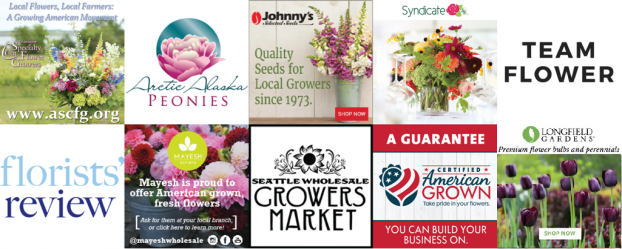
Thank you to our sponsors for supporting The Slow Flowers Podcast.
Florists’ Review magazine. I’m delighted to serve as Contributing Editor for Slow Flowers Journal, found in the pages of Florists’ Review. It’s the leading trade magazine in the floral industry and the only independent periodical for the retail, wholesale and supplier market.
Arctic Alaska Peonies, a cooperative of passionate family farms in the heart of Alaska providing bigger, better peony flowers during the months of July and August. Visit them today at arcticalaskapeonies.com
Seattle Wholesale Growers Market, a farmer-owned cooperative committed to providing the very best the Pacific Northwest has to offer in cut flowers, foliage and plants. The Growers Market’s mission is to foster a vibrant marketplace that sustains local flower farms and provides top-quality products and service to the local floral industry. Find them at seattlewholesalegrowersmarket.com
Longfield Gardens provides home gardeners with high quality flower bulbs and perennials. Their online store offers plants for every region and every season, from tulips and daffodils to dahlias, caladiums and amaryllis. Visit them at longfield-gardens.com.
Syndicate Sales, an American manufacturer of vases and accessories for the professional florist. Look for the American Flag Icon to find Syndicate’s USA-made products and join the Syndicate Stars loyalty program at syndicatesales.com.
Johnny’s Selected Seeds, an employee-owned company that provides our industry the best flower, herb and vegetable seeds — supplied to farms large and small and even backyard cutting gardens like mine. Check them out at johnnysseeds.com.
Association of Specialty Cut Flower Growers. Formed in 1988, ASCFG was created to educate, unite, and support commercial cut flower growers. It mission is to help growers produce high-quality floral material, and to foster and promote the local availability of that product. Learn more at ascfg.org
Mayesh Wholesale Florist. Family-owned since 1978, Mayesh is the premier wedding and event supplier in the U.S. and we’re thrilled to partner with Mayesh to promote local and domestic flowers, which they source from farms large and small around the U.S. Learn more at mayesh.com.
Certified American Grown Flowers. The Certified American-Grown program and label provide a guarantee for designers and consumers on the source of their flowers. Take pride in your flowers and buy with confidence, ask for Certified American Grown Flowers. To learn more visit americangrownflowers.org.
And the Team Flower Conference – a professional floral event where flower lovers from all over the world gather for networking, learning, and celebration. It’s a special time for the floral industry to come together and whether you’re a farmer, designer, wholesaler, or just love flowers, you’re invited to attend as Team Flowers dreams big for the industry’s future. Head to teamflower.org/slowflowers to learn more about the 2019 conference in Waco, Texas!
I’m Debra Prinzing, host and producer of the Slow Flowers Podcast. Next week, you’re invited to join me in putting more American grown flowers on the table, one vase at a time. And If you like what you hear, please consider logging onto iTunes and posting a listener review.
The content and opinions expressed here are either mine alone or those of my guests alone, independent of any podcast sponsor or other person, company or organization.
The Slow Flowers Podcast is engineered and edited by Andrew Brenlan. Learn more about his work at soundbodymovement.com.









